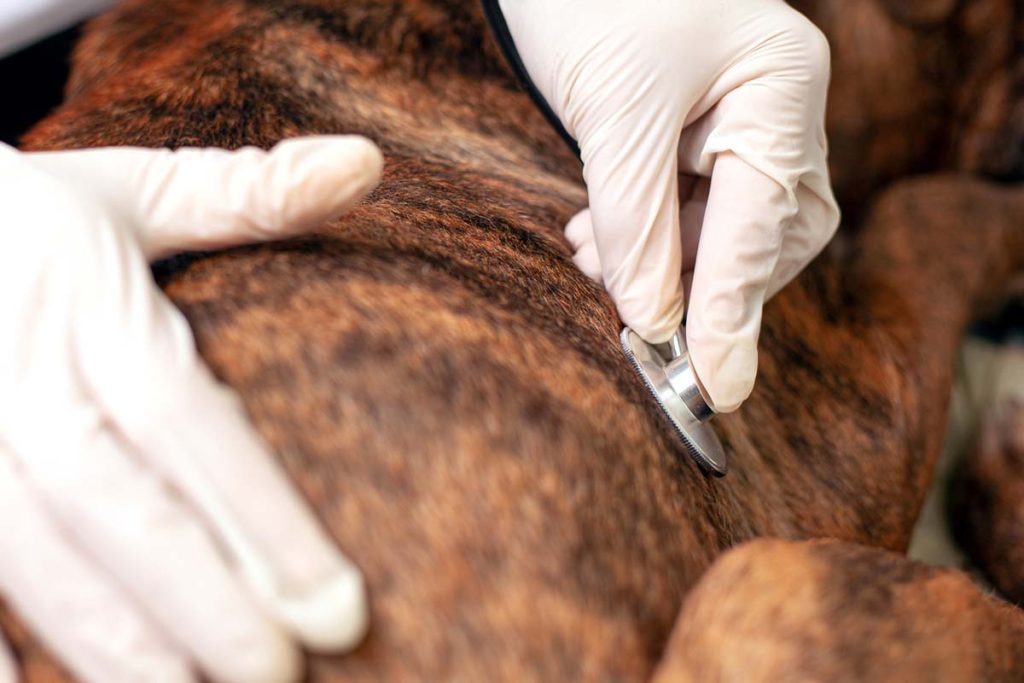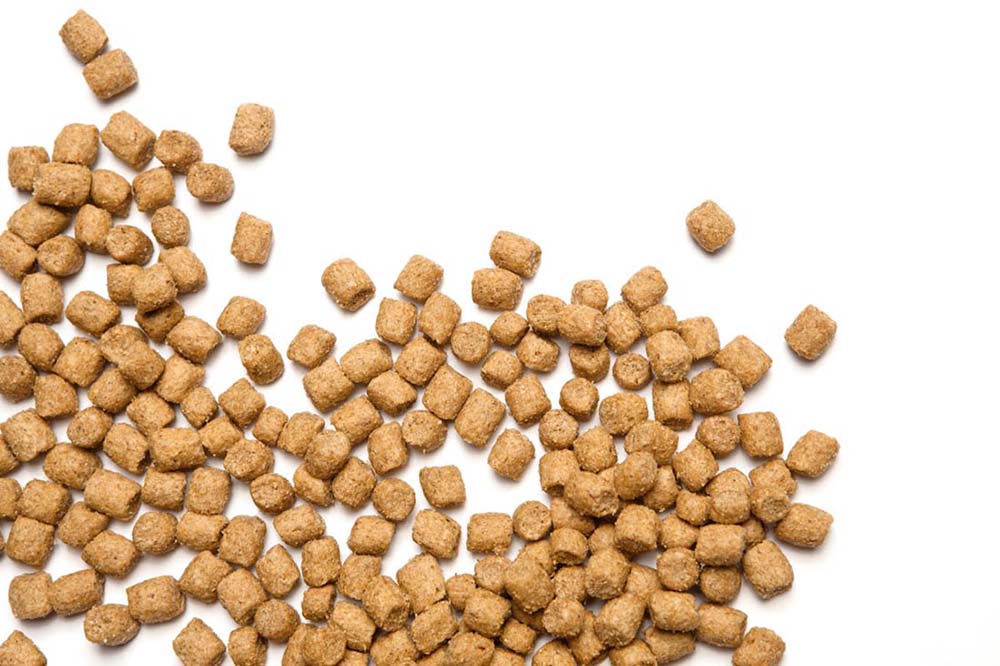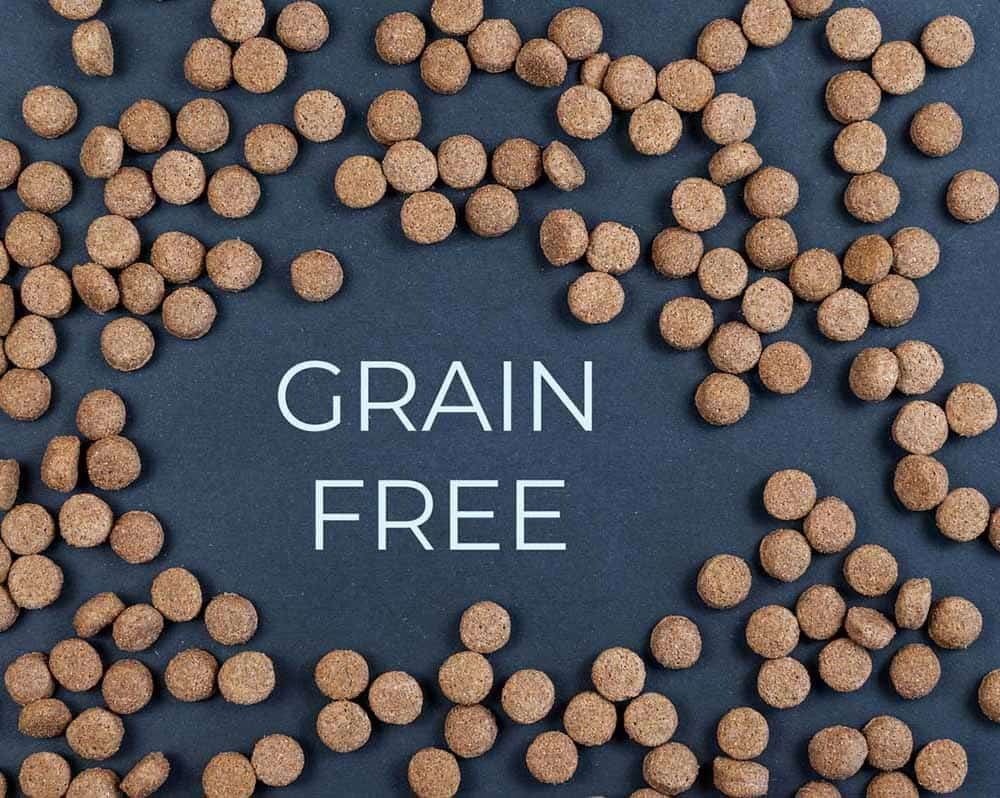Grain Free Dog Food and Heart Disease
Veterinarians and pet owners are worried about the link between grain-free diets and heart disease in dogs, namely dilated cardiomyopathy (DCM).
Dog parents may have noticed many canine diet trends have developed in the recent past. A dog’s diet is the most important element of his overall health care, and thus, it’s an important decision.
As a result, many pet parents have become increasingly interested in grain-free diets and grain-free dog food. But, as a result of this interest, many veterinarians and pet owners are worried about the link between grain-free diets and heart disease, namely dilated cardiomyopathy (DCM).
Let’s explore this potential link between pet diets and what can be a devastating heart disease.
The Food and Drug Administration Investigation
In 2018, acting on the advice of veterinary nutritionists, the Food and Drug Administration (FDA) initiated an investigation into a link between canine dilated cardiomyopathy and certain diets. The investigation gathered reports from January 2018 through April 2019. The reports indicated 553 dogs had developed DCM, as compared to previous years in which only three were reported.
The breed breakdown was the following:
- 95 Golden Retrievers
- 62 mixed-breed dogs
- 47 Labrador Retrievers
- 25 Great Danes
- 50 cases involving additional breeds
Moreover, the FDA found that 16 pet food companies had ten or more cases of DCM associated with their foods. Of those foods, more than 90% were grain-free, and 93% contained peas or lentils. Some also contained potatoes.
All grain-free diets had the same average percentages of fat, protein, taurine, and taurine precursors as grain-based diets. A 2021 study out of Tufts University found that the inclusion of peas represented the greatest difference between the diets.
What Is Canine Dilated Cardiomyopathy?

DCM is a disease of the heart muscle. The disease causes arrhythmias (where the heart or parts of the heart beat weakly/abnormal heart rhythm). As the heart works harder to do its job, it becomes enlarged. It’s quite common, and in fact, DCM is the second most common canine heart disease.
In the past, most cases of DCM were considered hereditary and affected mostly large and giant breed dogs with predispositions. These include:
- Great Danes
- Doberman Pinschers
- English Cocker Spaniels
- Irish Wolfhounds
- American Boxers
- Newfoundlands
Because it seemed to affect certain breeds, so-called primary DCM is considered hereditary in nature even though only a few genes associated with the disease have been identified.
Primary DCM
The primary form of DCM is a progressive disease that ultimately results in congestive heart failure. The failure of the heart to beat properly results in a fluid buildup in the abdomen and lungs (thus, the term congestive).
Dogs who have progressed to the point where they have congestive heart failure often faint and can die suddenly. However, it has come to the attention of researchers that there is another kind of DCM.
Secondary DCM
Secondary DCM can result from certain medications, infections, and/or as a result of nutritional causes. Specifically, dogs fed certain diets that are deficient in nutrients like taurine or Vitamin B1, or that are too high in certain toxic compounds like heavy metals, are at a greater risk for developing diet-related DCM.
Diet-associated DCM is also sometimes seen in dogs and cats that eat home-prepared diets. Homemade diets can be unbalanced unless they are formulated by a veterinary nutritionist.
One of the unique features of this secondary DCM is that it can affect any dog breed, as opposed to just affecting those breeds in which hereditary DCM is commonly found. Another feature of secondary DCM is that it can improve if the dog’s diet is changed. This is not something that happens with primary DCM.
This, in combination with an increase in DCM cases in smaller dog breeds, piqued the interest of veterinary cardiologists, who were later able to show the link between DCM and diet.
Multiple studies found that dogs with diet-associated DCM can show improvement in their heart size and function with diet change. They can also live much longer than dogs diagnosed with primary DCM.
While they can improve, it is important to note that improvement can take many months or even years. Dogs affected by this heart disease can still die suddenly while undergoing treatment.
Signs of DCM
Clinical signs of DCM include:
- rapid breathing at rest
- coughing or gagging
- weakness
- exercise intolerance
- difficulty breathing
- collapse
- loss of appetite
- weight loss
- swollen belly
- sudden death
Take your dog to the vet if you notice any of these symptoms. Your DVM may do blood tests and x-rays before referring you to a board-certified veterinary cardiologist.
Diets Associated with DCM

So, what diets are associated with secondary DCM? Let’s take a look at a few potential culprits potentially putting your dog’s heart at risk.
Grain-Free Dog Foods
One of the patterns noted with diet-associated DCM was that it seemed to occur in dogs being fed non-traditional diets. Many of these are grain-free dog foods.
In one study conducted by the College of Veterinary Medicine at North Carolina State University, dogs fed a grain-free diet did show that part of their heart was consistently larger than dogs fed a grain-based diet. Their study also showed that the dogs fed a grain-free diet did not show evidence of a taurine deficiency. Although, of the seven dogs that were re-evaluated after a diet change and showed clinical improvement, six had received taurine supplementation.
This study also showed there was no difference in the incidence of congestive heart failure between the group of dogs fed grain-free diets and that in which the dogs were fed grain-based diets.
Diets High in Pulses

Given the association with grain-free diets, some researchers began to speculate about the ingredients that might be specifically responsible for the association. Many grain-free commercial dry diets (kibble) contain pulses and sweet potatoes or regular potatoes.
Pulses are part of the legume family and include peas, lentils, chickpeas, and dry beans. However, not all legumes are associated with the problem. Soy, which is a legume, is not associated with secondary DCM.
While some research shows that legumes like peas may be behind this form of DCM, it is possible that is just a reflection of the fact that peas are commonly used in dog foods. As noted by specialists in the Cummings School of Veterinary Medicine at Tufts University, in 2017, 51% of dry dog foods contained peas, 23% contained chickpeas, and 14% contained lentils.
So peas and other pulses may not be the culprits; they just happen to be part of the ingredients for many dog foods. Still, the link between diet-associated DCM and grain-free diets may be due to the inclusion of pulses as opposed to the presence or absence of grains in the diet.
Many grain-free diets use pulses and potatoes to replace grains. Now that some grain-based diets containing pulses have been associated with DCM, that suggests that pulses are the problem.
Studies looking at pulses
The jury is still out, however, since two recent studies published in 2023 have yielded contradictory findings. A new Tufts University study found that switching dogs affected by diet-associated DCM to a traditional, grain-based diet led to an improvement in their condition. The dogs involved in the study were all breeds not known to be at risk for hereditary DCM.
The second study, however, involved agricultural and veterinary colleges at the University of Ontario in Canada and researchers associated with Champion Pet Foods. They found that Siberian Huskies fed diets containing a maximum of 45% whole pulse ingredients and no grains showed no evidence of developing diet-associated DCM. It’s important to note, however, that this study only followed these dogs for 20 weeks. That the median time for dogs being fed a grain-free diet to develop DCM is four years.
What About Taurine?
One of the first causes that researchers suspected of diet-associated DCM was a taurine deficiency. Taurine supplements are often used in conjunction with carnitine (an amino acid) to treat DCM. (Other medications used include pimobendan, diuretics, ACE inhibitors, and cardiac glycocides.)
Taurine deficiency has been known to cause secondary DCM, but most of the studies conducted on dogs with DCM did not indicate that blood levels of taurine were lower than they should be.
Blood levels of taurine, however, may not be the best indicator of the dog’s taurine status. One study out of the UK found that changes in taurine metabolism occurred in dogs fed grain-free diets.
Thus, it appears that more research into how taurine is affected by a grain-free diet and what that means is necessary to truly understand how it does or does not affect the possibility of developing DCM. Other common toxins and excessive levels of nutrients need to be evaluated for a possible association with DCM as well.
What is the Latest on Grain-Free Dog Food and Heart Disease?
In general, the research to date most strongly supports the hypothesis that high levels of pulses in a dog’s diet seem to be the strongest predictor of whether or not the dog is at risk for developing diet-associated DCM.
The specific mechanism has not yet been identified, but it appears these ingredients are contributing to the problem. The most recent update from the FDA shows a decrease in the number of dogs with DCM (255). Some have posited that may indicate it’s going away.
However, it may also reflect changing formulations for dog diets and/or a decrease in the popularity of grain-free diets. It’s still a very high number (as compared to only three in previous years). And that only includes the dogs reported to the FDA to have the problem.
One of the reasons for that is for a veterinarian to diagnose DCM, they have to do an echocardiogram (an ultrasound of the heart to see enlargement) and electrocardiogram (ECG, to determine accurate heart rate) to find abnormalities. This is not always performed, however, and the case may then not get reported to the FDA, particularly since reporting a case is a time-consuming process.
That drop in the number of cases, therefore, may simply reflect fewer veterinarians and owners reporting DCM cases to the FDA, as opposed to an actual drop in the number of pets affected by this heart disease.
What About Cats?
Diet-associated DCM is also a developing problem in cats. This used to be a much bigger problem in cats until the link between DCM and taurine deficiency was discovered. Taurine levels in commercial diets were subsequently increased.
Still, as with dogs, grain-free cat foods commonly contain peas and other pulses. While the research is ongoing, it is possible that cats eating a diet high in pulses can also develop a secondary diet-associated DCM.
What’s a Dog Owner to Do?
As a loving pet parent, you want to keep your best furry friends safe from harm. So, here are some suggestions for what you can do to keep your furry friend healthy and happy.
- Read the full ingredient list. The science suggests a strong correlation between pulses and the risk of developing DCM. It’s important, therefore, to read the main ingredient list and look for pulses (peas, pea protein, lentils, chickpeas, and so on), particularly if they are among the top ten ingredients listed.
- Change your pet’s diet. If your dog or cat is diagnosed with DCM or some of the earlier changes that occur as DCM develops, change their diet to one that is lower in sodium and doesn’t contain pulses or potatoes (including sweet potatoes). Of course, you should do this in consultation with your veterinarian or veterinary nutritionist.
- Report a diagnosis. If your dog or cat is diagnosed with DCM after a cardiology exam, please report that diagnosis to the FDA. This can help with the ongoing research into this potentially devastating problem.
This content is for informational use only and does not replace professional nutrition and/or medical advice, diagnosis, or treatment. It is not a substitute for and should not be relied upon for specific nutrition and/or medical recommendations. Please talk with your veterinarian about any questions or concerns.
Citations
Bakke, Anne Marie, Joshua Wood, Carina Salt, David Allaway, Matt Gilham, Gail Kuhlman, Tiffany Bierer, Richard Butterwick, and Ciaran O’Flynn. 2022. “Responses in Randomised Groups of Healthy, Adult Labrador Retrievers Fed Grain-Free Diets with High Legume Inclusion for 30 Days Display Commonalities with Dogs with Suspected Dilated Cardiomyopathy.” BMC Veterinary Research 18 (1). https://doi.org/10.1186/s12917-022-03264-x.
Singh, Pawanpreet, Sydney Banton, Shari Raheb, James R. Templeman, Jennifer Saunders-Blades, Darcia Kostiuk, Janelle Kelly, et al. 2023. “The Pulse of It: Dietary Inclusion of up to 45% Whole Pulse Ingredients with Chicken Meal and Pea Starch in a Complete and Balanced Diet Does Not Affect Cardiac Function, Fasted Sulfur Amino Acid Status, or Other Gross Measures of Health in Adult Dogs.” The Journal of Nutrition, March. https://doi.org/10.1016/j.tjnut.2023.03.027.
Fischer, Kara E, John E Rush, and Lisa M Freeman. 2023. “Pit Bull–Type Breeds with Dilated Cardiomyopathy Eating Nontraditional Diets Improve after Diet Change (2015–2022).” Javma-Journal of the American Veterinary Medical Association, April, 1–9. https://doi.org/10.2460/javma.23.01.0025.
Bakke, Anne Marie, Joshua Wood, Carina Salt, David Allaway, Matt Gilham, Gail Kuhlman, Tiffany Bierer, Richard Butterwick, and Ciaran O’Flynn. 2022. “Responses in Randomised Groups of Healthy, Adult Labrador Retrievers Fed Grain-Free Diets with High Legume Inclusion for 30 Days Display Commonalities with Dogs with Suspected Dilated Cardiomyopathy.” BMC Veterinary Research 18 (1). https://doi.org/10.1186/s12917-022-03264-x.
Adin, Darcy, Teresa C. DeFrancesco, Bruce Keene, Sandra Tou, Kathryn Meurs, Clarke Atkins, Brent Aona, Kari Kurtz, Lara Barron, and Korinn Saker. 2019. “Echocardiographic Phenotype of Canine Dilated Cardiomyopathy Differs Based on Diet Type.” Journal of Veterinary Cardiology 21 (February): 1–9. https://doi.org/10.1016/j.jvc.2018.11.002.
Smith, Caren E., Laurence D. Parnell, Chao-Qiang Lai, John E. Rush, and Lisa M. Freeman. 2021. “Investigation of Diets Associated with Dilated Cardiomyopathy in Dogs Using Foodomics Analysis.” Scientific Reports 11 (August). https://doi.org/10.1038/s41598-021-94464-2.







